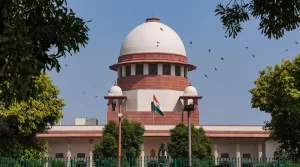❈ ❈ ❈
Revolutionary Venezuelan Women Collectives at Forefront
Paez, Venezuela – Groups of mainly women stand with pride in front of Manuelita Saenz Bolivarian School and Community Center. The new center and school provide classes on music, culture, politics, feminism, sports, etc. Children and adults from all over the neighborhood attend to open their minds and improve their education.
“We are a vanguard. We started workshops on politics, religion, feminism, cooking and much more,” says Adelheidh Salcedo, teacher at the Manuelita Saenz Bolivarian School and Center.
In Venezuela, the communes – community organizations – have the power to choose what projects need to be funded for their communities. Over 47,000 commune councils are registered with the Venezuelan government. They write proposals to the Maduro-led government, then the government provides resources and guidance to support them. These projects are seen all over Venezuela, with communes choosing to build new housing, such as the 93 apartment building built in the community of Antimano, Caracas. Others chose to construct community food gardens, schools, playgrounds, or to meet other needs.
The community members of Paez contacted the government about an abandoned building that they wanted to use to start a new school and community center. The government approved the project, and the group, led by over 75% women, hit the ground running to build the Manuelita Saenz Bolivarian School and Center.
“The Paez community organized everything, with rehabbing the building, finding teachers and planning extensive curriculum. The governor also helped us with supplies, painting and rehabilitation. There is a lot of participation from everyone. Women are critical for our revolution here in Venezuela,” says Karla Mogollon Lucena, Paez community organizer.
In the rural mountains of Monte Carmelo, the community chose to develop a center that includes all women’s food production, workshops and community meetings. The food production collective used local farming to make pasta sauce and sweets. All the ingredients were locally harvested by the local garden and sold to nearby regions. They proudly display their jars that contain a symbol of a woman with flowing hair.
“Not only, do we garden and make our own food, but we hold feminist workshops. We invite women from all over to share their expertise and experiences with us. Some are feminist experts at giving women a voice, others share with us how to do mechanic and fix cars, others tell us ways to improving vegetable gardening. We learn a lot from women from all over Venezuela. Women are most of the ones who lead these workshops. Women are warriors and leaders in the revolution,” said Gaudy Garcia, a leader of the Family and Gender Equity Committee of the Monte Carmelo Commune.
The Systemic Commune Laws, which started under the President Chavez’ government, include 77 articles on how the commune councils are elected, how they make decisions, their popular participation in the economics and production in their communities, their function and duties of serving their community, ideas of possible projects, how to promote justice and equal rights for all genders and members, respect social traditions and cultures, and provide workshops on social justice.
“There is a lot of machismo and sexist culture in Latin America. From our feminist classes, I learned how to stand up for myself and tell my husband that he needs to do half the cooking and cleaning. It shouldn’t all fall on the woman. In most of Latin America, women do all of the cooking and cleaning,” said Maria Rodriguez, a community member of the Family and Gender Equity Committee of the Monte Carmelo Commune.
When starting the Systemic Commune Law, Chavez said, “Commune or nothing.”
These communes have been key to political education, building up the communities, increasing the resources and supporting local production. Communes are seen in every part of the country, from the rural areas, small towns to large cities.
“We make a lot of our own materials for our school and use recycled materials too. We work hard and are passionate about improving our community. We are a rural area, but we make sure the kids are educated well. We also teach about sexism in the language and how often society uses male dominant language, we want to change that. Us women are the political leaders here. We celebrate women because we are feminists,” says Maribel, community leader of Monte Carmelo.
The communes have been an effective way to build local leadership, promote collaboration among workers, and improve the economy. Every commune our staff visited tells us about how their commune is helping lead the revolution to improve the lives of the people and promote the people’s democracy.
“We have won national and international awards for our innovation and achievements,” says Gaudy Garcia.
(Article courtesy: Fight Back! News.)
❈ ❈ ❈
Workers Take Over a Kellogg Factory, Now Known as ‘Socialist Kellogg’
In the worker-controlled Venezuelan Kellogg factory, you see the workers working diligently to make corn flake and sugary cereals in a new package displaying the Venezuelan flag and the words “Together for Venezuela.” They are wearing black caps with red letters that say,
“Kellogg made in socialism.”
In May of 2018, the Kellogg bosses told the factory workers that they had the weekend off due to maintenance. When the workers arrived the following working day, they were shocked to see a large sign on the factory, “We closed operations in Venezuela.” The bosses didn’t notify them, in person, of the closure or that hundreds would lose their jobs. The workers also found out that the Kellogg had placed very little severance in their accounts, which didn’t fulfill their union contracts.
“There was no reason for the company to close and leave because all the raw materials were produced in Venezuela, the corn and sugar, etc. The company even left a year’s worth of raw materials within the factory. They closed because of political reasons and not supporting the Maduro’ government. But they committed one mistake: Kellogg left the working class well trained,” says Orlando Contreras, the president of the factory’s union.
The workers and the union hit the ground running to organize so the factory could stay open and the workers wouldn’t lose their jobs.
“The participation of the union was immediate after the factory closed. We called all the workers to tell them what was happening. Then, we made contact with the Confederation of Workers and the state government to receive support in figuring out the steps to reopen the company. The Ministry of Labor helped the workers with contacting the rest of the governmental agencies, the Attorney General and the Defense of the People agency, to gain control of the company,” said Orlando.
A longtime worker and the new factory president Milton Torres says,
“It was through the union and the union workers that it was possible to take over the factory. They knew how all the machines worked and how to make quality products.”
“Thanks to us being trained and well-organized, all of us workers reopened the factory and put it into production. We took over the factory to protect the rights of the workers. We enforce the food policies inside our homeland of Simone Bolivar and Chavez. Now, Kellogg’s company here is a socialist enterprise. The basic principles of our socialist enterprise are to dignify the work of our working class, increase the levels of production, guarantee that the equipment is highly maintained, produce good quality products, in a fair price and to be a self-sustainable company to contribute to the economic development of the country,” says Orlando Contreras, beaming with pride.
The workers have increased the production from two cereal types to four. Two week ago, they also contacted the Ministry of Labor to visit the factory and support the workers by increasing sales. The workers asked the Ministry of Labor to prioritize selling their “Socialist Kellogg” cereal and increase the number of places their cereal is sold, since it is all produced in Venezuela, unlike the other imported cereal brands. With more sales, they can increase the production and worker salaries and benefits.
After the takeover, the workers now have an important voice in the company, which they never had before.
“The new ‘Socialist Kellogg’ President Milton Torres and the administration consult with us workers to make important decisions. If the company is doing well, they ask the workers which benefits they want to improve and prioritize. There are currently in discussions around creating a collective board with the union leaders and the administration of the factory,” says Orlando.
Not everyone was happy with this new “Socialist Kellogg,” the staff takeover, or the use of the Kellogg symbol. Kellogg is currently suing the Venezuelan government and the new factory President Milton Torres for $72 million for continuing to use the Kellogg symbol and for using their property.
“If Kellogg returns, we will give the factory back, as long as they keep the same salaries and rights of the workers,” says Orlando.
This worker takeover is an inspiration to the world on how workers and their unions can fight to stop store closings, organize for the rights of the workers, improve their salaries, working conditions and benefits.
(Originally published: Fight Back! News)




